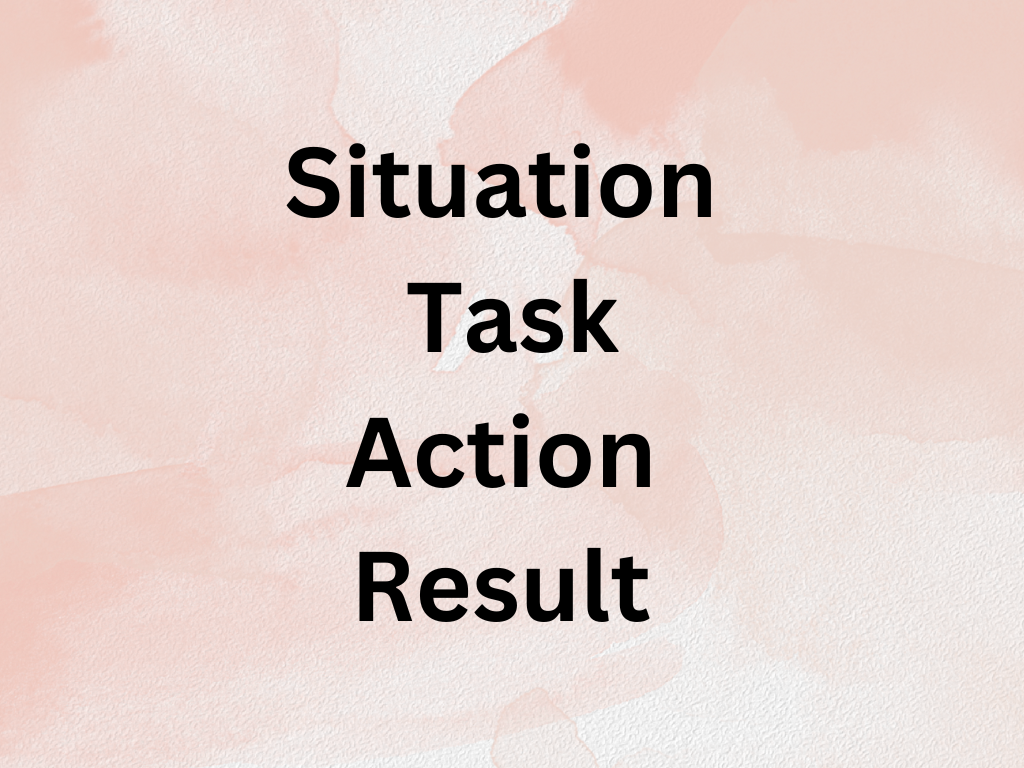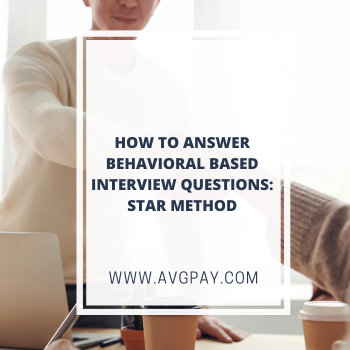The current competitive job market makes securing any dream job extremely difficult. You need more than just a resume and cover letter. Being successful in the interview process is necessary if you wish to secure better jobs. Interviews, in general, are one of the biggest that hold back many job seekers. Throw in the tricky questions, and it makes it even more difficult.
Among the various interview techniques employed by hiring managers, behavioral-based interviews are a popular and effective method for assessing candidates’ suitability for a role.
Behavioral-based interviews require you to discuss your past experiences to predict your future performance. These interviews are designed to reveal not only your qualifications and technical skills but also your ability to navigate real-world challenges and contribute positively to a prospective employer’s team.
Being successful at these interview questions requires you to have a strategic approach that you can rely on.
That’s where the STAR method comes into play – it’s a proven formula that can help you answer behavioral interview questions with confidence and clarity.
In this article, we’ll explore the STAR method and provide you with practical insights and examples to help you ace your next interview. The better you get at using the framework, the more you’ll stand out during interviews.
Let’s get started.
Behavioral interview questions vs. situational interview questions: What’s the difference?

Before we discuss the specifics of the STAR method, it’s important to understand the difference between two common types of interview questions: behavioral and situational. You can still use the STAR method for both, but the response and examples you provide must be relevant for it to be effective.
Behavioral Interview Questions
Behavioral interview questions are designed to use your past behavior and experiences as an indicator of how you might behave in future work-related situations.
These questions often start with phrases like:
“Tell me about a time when…”
“Give me an example of…”
“Describe a situation where…”
The goal of behavioral questions is to use specific examples from your past that demonstrate your skills, abilities, and behaviors relevant to the job.
For instance, if you’re interviewing for a project management position, a behavioral question might be: “Tell me about a time when you had to manage a tight deadline and limited resources. How did you handle it?”
Situational Interview Questions
On the other hand, situational interview questions present hypothetical scenarios that you might encounter in the role you’re applying for. These questions assess your ability to think critically and make decisions on the spot.
Situational questions often begin with phrases such as:
“What would you do if…”
“How would you handle a situation where…”
“Imagine you are faced with…”
Rather than drawing from your past experiences, situational questions ask you to construct a response based on your knowledge, skills, and judgment. The aim is to gauge how well you can apply your expertise to new and unexpected challenges.
For example, in an interview for a customer service position, you might be asked: “What would you do if a customer became irate and demanded a refund for a product that isn’t eligible for a refund according to company policy?”
The key difference between the two? Being able to modify the situation and task of the example that you provide.
What is the STAR method?

The STAR method is a widely recognized framework for answering behavioral interview questions. Some people find they go off on a tangent when describing things, resulting in the important parts of an answer being missed completely. Instead, the STAR method offers a structured approach to provide a clear and comprehensive response.
The acronym STAR stands for:
Situation (S)
Task (T)
Action (A)
Result (R)
Here’s a breakdown of each component of the STAR method:
Situation (S)
When describing the situation, aim to provide context without unnecessary details. Be concise in setting the stage, focusing on the key elements that are relevant to the question. Here, you should describe the specific situation or context in which your story takes place. This helps the interviewer understand the circumstances and any challenges you face.
Task (T)
Clearly outline the specific task or objective you were responsible for. This helps the interviewer understand your role and the expectations placed on you. Think about things like what was expected of you. What objectives need to be achieved?
Action (A)
This is the heart of your response. Describe the actions you took in a step-by-step manner. Highlight your problem solving skills, leadership, teamwork, or any other relevant qualities. Use “I” statements to emphasize your personal contribution. Also, be extremely specific and detailed in describing your actions.
Result (R)
Conclude your response by discussing the outcome or impact of your actions. If possible, quantify your achievements with specific metrics or numbers. Think specifically about what was the result or outcome of your efforts. Did you achieve your goals, and if so, what impact did it have?
Common behavioral interview questions to expect
Now that you know what the STAR method consists of, you need to be able to use it whenever the dreaded behavioral interview questions come up. So, to help you prepare, we’ve compiled a list of 30 common questions that may come up during your interview:
- Tell me about a time when you had to meet a tight deadline.
- Describe a situation where you had to work as part of a team to achieve a goal.
- Can you give an example of a time when you had to resolve a conflict within your team?
- Share an experience where you had to adapt to a significant change at work.
- Discuss a project you initiated or led. What were the results?
- Tell me about a time when you had to handle a difficult client or customer.
- Describe a situation where you had to make a tough decision with limited information.
- Share an experience when you had to multitask and manage competing priorities.
- Can you recall a time when you had to provide leadership or mentorship to a colleague?
- Discuss a project where you faced obstacles and setbacks. How did you overcome them?
- Tell me about a time when you identified a process improvement opportunity.
- Describe a situation where you had to persuade others to see your point of view.
- Share an experience when you had to work with a challenging team member or supervisor.
- Can you give an example of a time when you demonstrated excellent time management skills?
- Discuss a situation where you had to deal with a dissatisfied customer. How did you handle it?
- Tell me about a project where you had to use data or analytics to make decisions.
- Describe a time when you had to take the initiative to solve a problem.
- Share an experience where you had to adapt to a new technology or software.
- Discuss a situation where you successfully met or exceeded a sales target.
- Can you give me an example of a time when you had to give constructive feedback to a colleague?
- Tell me about a time when you had to prioritize tasks to meet a critical deadline.
- Describe a situation where you had to handle a crisis or emergency at work.
- Share an experience when you had to lead a team through a challenging project.
- Discuss a project where you had to manage a tight budget. How did you ensure success?
- Can you recall a time when you had to learn a new skill or subject quickly for work?
- Tell me about a situation where you had to manage a project with conflicting stakeholder interests.
- Describe a time when you had to admit to a mistake at work. How did you handle it?
- Share an experience where you had to influence a decision without direct authority.
- Discuss a situation where you had to handle sensitive or confidential information.
- Can you give an example of a time when you had to take a calculated risk in your role?
Bottom Line
The ability to answer any behavioral interview question that is thrown at you will get you far. In fact, it is a must for all job seekers. During a job interview, the hiring manager is not just interested in your qualifications on paper; they want to understand how you have applied your skills and experiences in real-world situations. Especially when nowadays many people have qualifications but not enough experience.
To excel in interviews, practice answering behavioral interview questions with a variety of real-life scenarios from your past. Tailor your responses using the STAR method and think of as many scenarios as possible. This will allow you to develop a sample answer that you can always fall back on. Just make sure that your example answer is relevant to the role you’re applying for.
And with that, our last message is, good luck with your interview!
P.S. Feel free to browse the rest of our site for more informative articles on the world of employment.

